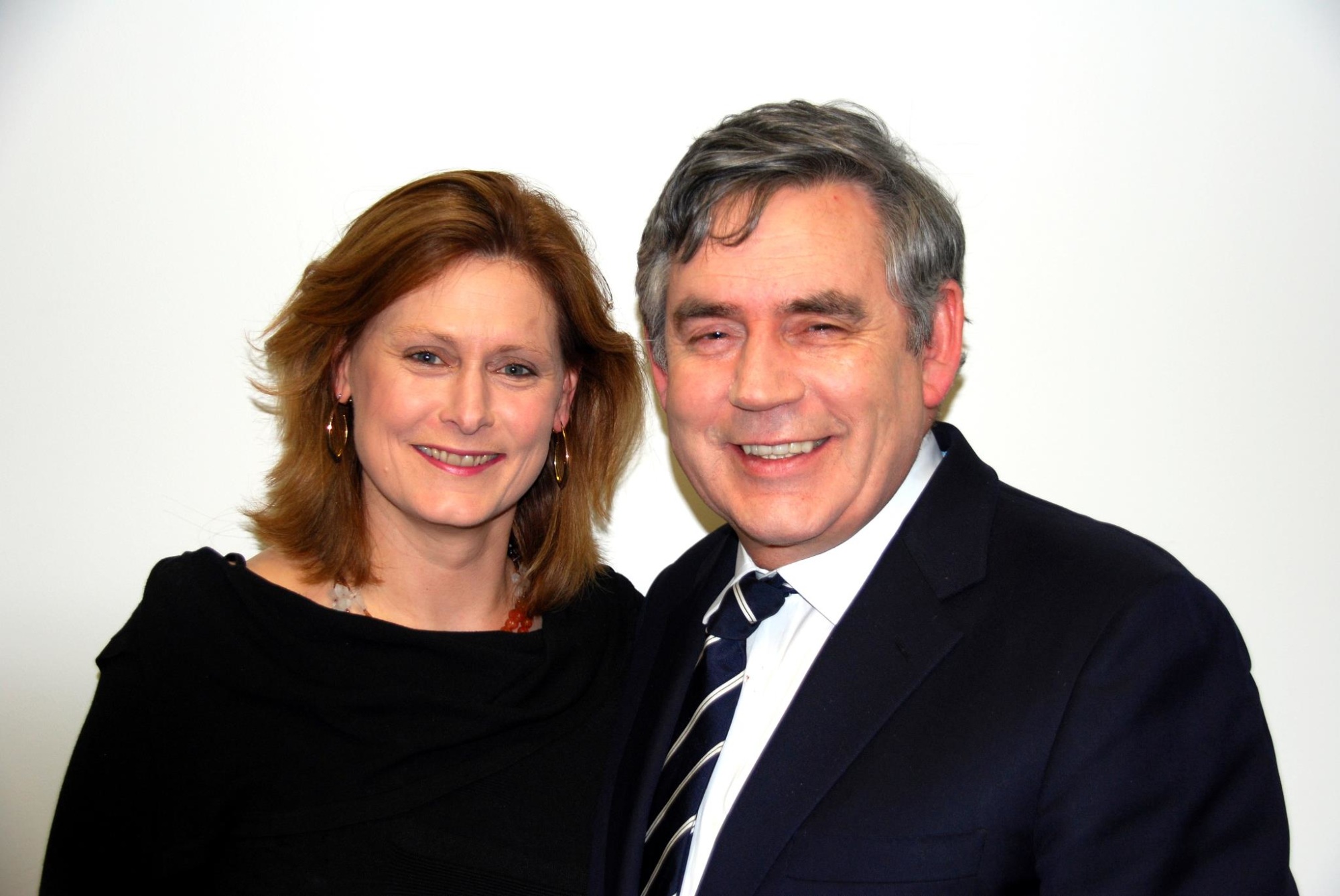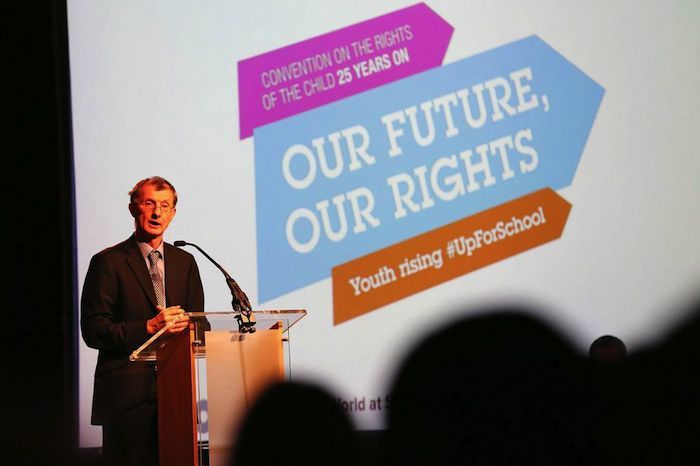
“75% of Lebanese refugee children are now in school but the tragedy is that it’s a really isolated example”
Barriers to education, Double-shift schools, Education in emergencies, Girls' education, Refugees and internally displaced people, Right to education, Sarah Brown
In this special episode of her Better Angels podcast, Theirworld President Sarah Brown talks to Save the Children UK chief Kevin Watkins about his work and the importance of being able to relate to those who need help.
He is renowned as an original thinker. But Kevin Watkins does so much more than ponder the world’s problems – he’s a man who knows how to get things done on a local and global level.
After many years with the charity Oxfam and then the United Nations, he headed the think tank Overseas Development Institute before becoming Executive Director of Save the Children UK last year.
“He’s an original thinker and a real humanitarian, combining a great mixture of intellectual power and the practical will to get things done,” says Theirworld President Sarah Brown as she introduces a special interview episode of the Better Angels podcast.
It was Kevin who first came up with the idea for double-shift schools in Lebanon, to help the country deal with educating huge numbers of Syrian refugee children. Using the same classrooms, Lebanese and Syrian children can go to lessons at different times of the day.
“The results have been pretty extraordinary,” he says. “Actually, something like 75% of Lebanese refugee children, school-aged children, are now in school. That figure was in the low 20% four years ago.
“I think that’s a small example of what is possible. The tragedy is that it’s a really isolated example.
In this in-depth discussion, Kevin talks about the lack of financial help for host countries after the Syrian refugee crisis began six years ago.
“The typical international response is to wait,” he says. “The World Bank did nothing in Lebanon for three years, as almost one million children made this journey from Syria into Lebanon as refugees.
“We have no action at all for three years. Which means, in a best case scenario, these kids have lost three years of schooling.
“You then scramble together some short-term funding for one term, half a year, a year and pretend that it’s a systemic response, which it’s not.
“In effect what you’re doing is you’re writing off the future of a whole generation of refugee kids. You’re leaving a country like Lebanon … you’re turning your back on them and saying ‘You go deal with it’.”
Kevin says structured funding is the key to overcoming obstacles such as early marriage and child labour to get every child in the world into school.
He reveals that, whenever he goes into parts of the world riven by conflict or afflicted by poverty, the people there understand the value of education.
“The thing is they’re absolutely right,” he adds. “We know that education is the single most powerful catalyst of change. It’s what lifts people out of poverty. It’s what improves health. It’s what creates jobs. It’s what drives growth.”
He also talks about Save the Children’s three big priorities – health, nutrition and protection of children in armed conflict.

“For me, what international development is about is three very fundamental things,” says Kevin.
“It’s about human solidarity and about recognising that, in a globalised world, we all have responsibilities for each other, that we’re all connected.
“It’s about empathy, and this ability to put yourself in somebody else’s shoes, and say ‘That could be me’. Or ‘That could be my kid who’s getting bombed in Aleppo’.
“It’s about caring enough to make a difference. I think I do have a very strong sense of personal responsibility to try to make a difference.”
Don’t miss an episode – subscribe now
To subscribe via iTunes from this page, hit the iTunes icon above.
If you are on a desktop, you’ll need to select ‘View in iTunes’ and once the iTunes programme is open, you’ll be able to switch on a subscription.
Alternatively, if you have a podcast player that subscribes via RSS, you can click the RSS icon on any episode or use this link to get a full feed of all the episodes.
To subscribe via iTunes from this page, hit the iTunes icon above.
If you are on a desktop, you’ll need to select ‘View in iTunes’ and once the iTunes programme is open, you’ll be able to switch on a subscription.
Alternatively, if you have a podcast player that subscribes via RSS, you can click the RSS icon on any episode or use this link to get a full feed of all the episodes.
More news

